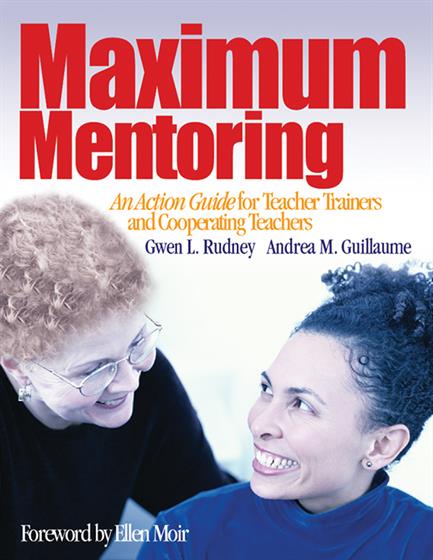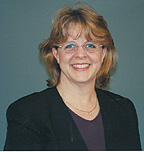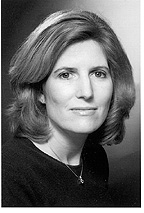Foreword
Acknowledgments
About the Authors
1. Introduction: First Things First
Roles for Those Who Mentor
Cooperating Teacher
Support Provider
Peer Coach or Mentor
Your Rights and Responsibilities as a Mentor
What This Book Does
Exercises
1.1 Recording Your Roles and Responsibilities
1.2 Setting a Purpose to Read
1.3 Let's Go Surfing Now
2. Teacher Development
The Concerns and Reflections of Student Teachers
Novice Teachers and How They Differ From You
The Tasks Novice Teachers Accomplish
Knowledge of Pupils
Image of Self as Teacher
Integrated Procedural Routines
Categories of Concern and Changes That Occur
Thinking About Your New Teacher Partner's Thinking
Exercises
2.1 Self-Study
2.2 Making Connections
2.3 Study in Pictures
3. Building a Base for the Partnership
Building Relationships Through Trust and Understanding
Getting to Know Each Other as People
Getting to Know Each Other as Professionals
Building Effective Communication Strategies
Setting and Sharing Expectations
Active Listening
Ongoing Communication
Exercises
3.1 Uncommon Commonalities
3.2 Predictions
3.3 Discussion Starters
3.4 I Need/I Like Statements
3.5 Metaphors for Teaching
3.6 Knowledge Chart: Setting Goals for the Term
4. University Supervision: The Triad
"Who Is That Person and Why Is She Here?"
Understanding the Essentials of the Supervision Triad
Sharing Goals and Appreciating Perspectives
Sharing Space and Power
Sharing Time and Effort
Context for Communication and Collaboration
Exercises
4.1 Understanding Expectations
4.2 Preparing for a Supervision Conference
4.3 Rating the University Supervisor, Part 1
4.4 Rating the University Supervisor, Part 2
4.5 Rating Yourself
5. Off and Running: The First Week
Using the First Week to Build Your Relationship
Building Trust With the Student Teacher
Building Trust With the New Teacher Partner
Building Communication Structures
Clear Expectations
Feedback Mechanisms
Planning the Student Teaching Experience
Becoming Familiar With the Students, Classroom, School, and Local Context
Getting to Know the Students
Getting to Know the Classroom
Getting to Know the School and District
Getting to Know the Neighborhood
Parting Words
Exercises
5.1 First Week: The Off-and-Running Report Card
5.2 Assumption of Responsibility Plan
5.3 Getting to Know Our Classroom
6. Helping Novices Learn the Roles of Teaching
The Complexity of Teaching
Complex Conditions
Teachers' Many Roles
Teachers' Visions of Their Work
Tensions in Teaching
The Moral Dimension of Teaching
The Layeredness of the Experience Teacher Partner's Role
Supporting Competence in a Multifaceted Profession
Start With a Vision
Perceive and Address Classroom Complexity
Work Across the Range of Teacher Roles
Honor the Tensions of Teaching
Attend to the Moral Dimension of Teaching
Exercises
6.1 Articulating a Vision of Education
6.2 Looking for Classroom Complexity
6.3 A Few of the Many Roles of Teaching
6.4 Responding to a Case With Moral Implications
7. Observation and Feedback
The Power of Feedback
Before They Teach
While They Learn
After the Lesson
Formal Observation
Scientific Approach
Artistic Supervision
Clinical Supervision
Looking Ahead
Exercises
7.1 Joe's First Lesson Observation
7.2 Practicing the Scientific Aproach
7.3 Practicing the Artistic Approach
7.4 Practicing the Clinical Approach
8. Summative Evaluation
The Logic of Evaluation
What Will Be Judged?
Setting Standards of Performance
Data and Documentation
Making Data-Based Final Judgments
How the Process Can Work for You
Preparing the Summative Evaluation
Communicating Results
Exercises
8.1 The Top Five Skills for Beginning Teachers
8.2 Summative Evaluation: Questions to Ask and Answer
8.3 Measuring Up to the Role of Evaluator
8.4 Evaluating Evaluation
9. Working With a Student Teacher in Trouble
What Would You Do?
Framing the Struggle
Lack of Probable Potential or Presence of Developmental Delay?
Lack of Ability or Lack of Teachability?
Marginal or Failing Performance?
Now What?
Helping Your Mentee Understand the Problem
Awareness Phase
Assistance Phase
Making Final Decisions
Successful Resolution
Exercises
9.1 Framing the Struggle
9.2 Communication of Concern
9.3 Early Interventions
9.4 Preparing for a Difficult Conference
9.5 Conference Format
10. Growing as a Professional
Defining Action Research
Action Research
Conducting Action Research
Getting Going in Action Research: A Few Tips
Collaboration
Peer Collaborations
Professional Community Collaborations: Teacher Education Accreditation
Advanced Certification and Degrees
Certification
Graduate Degrees
Parting Words
Exercises
10.1 Personal Professional Inquiries
10.2 Inquiring Into Action Research
10.3 Investigating National Board Certification
10.4 Building and Sharing Professional Portfolios
10.5 Revising the Book
References
Index




